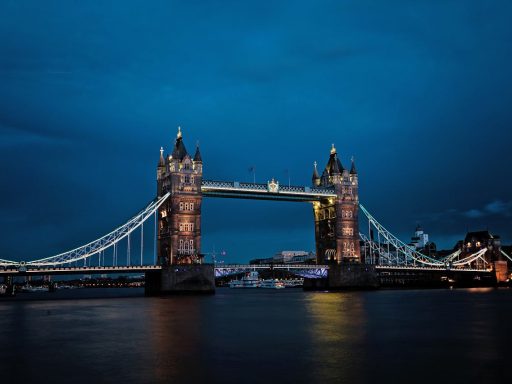Off-grid traveling has sky-rocketed in popularity, especially since the start of the coronavirus pandemic. Travel restrictions have been strict across the world, so many adventure seekers have taken matters into their own hands and opted for a safer form of travel away from tourist hotspots. Here’s what you should know before you begin your trip.
Finding the Perfect Destination
When you are traveling off-grid, the world is your oyster. You can travel as far or as near as you would like. Even a simple camping excursion to your nearest natural park can give you a great insight into what off-grid traveling is truly like. However, you can also dream big and travel to more adventurous destinations such as Mexico, Cambodia, or Australia. These countries all have vast, untouched landscapes waiting to be discovered.
Ideally, you want to look for remote destinations that aren’t typically frequented by tourists and that could be considered off the beaten path. These unknown locations are not only cheaper to visit but offer a more authentic experience of the country. This will give you the chance to connect with your surroundings and explore new cultures or landscapes.
If you do want to explore a more tourist-driven area, why not plan to go during the low season months. This way you can get a more authentic feel for the area and experience life as a local. You may not get to bask in the sunshine, but it will be easier for you to integrate yourself as a local instead of as a tourist. If you’re struggling to come up with some ideas, here are some of our favorite locations for off-the-grid travels.
Jenner, California, U.S.A
If you aren’t looking to leave the country, the coastal town of Jenner in California is only two hours away from the hustle and bustle of San Francisco. The best thing about this town is that there is no internet, cell service, or even a newspaper delivery service.
Azores Islands, Portugal
The Azores Islands, found resting in the middle of the Atlantic Ocean, has often been referred to as ‘the non-tropical’ Hawaii. This is a great pit stop if you want to make your way towards Europe as the archipelago is only a 4.5-hour flight away from Boston.
Torres del Paine, Patagonia, Chile
Patagonia is an incredible location full of jaw-dropping scenery that is home to some of the world’s most fascinating nature reserves. This location is perfect for thrill-seekers who enjoy a great hike or kayak. Not only this, but the region has practically no cell service, making it the perfect place to disconnect from technology and reconnect to nature.
Also read: Your Guide to Start a Travel Blog in 2021
Choosing the Right Transportation
The ultimate vehicle for off-grid traveling is undoubtedly a camper van. This way you can sleep, eat, and travel, all within the comfort of one vehicle. You have the freedom and convenience of traveling to any part of the world without having to take into consideration a schedule or way to get there. Campervans can be transformed into mobile homes and they can be kitted out to be extremely sustainable.
However, not everyone has a driving license, or the capital needed to invest in a campervan. This doesn’t mean that you can’t travel off-grid, you just have to find a different way to do so. Think about all the different transportation methods that are often overlooked when planning a vacation, such as trains, buses, or even boats. All of these options are considerably eco-friendly in comparison to a typical motor vehicle or airplane.
Taking All of The Essentials for traveling
Depending on how and where you are traveling, your packing list will be slightly longer or shorter. If you are traveling by foot and only plan on carrying your hiking backpack, then you won’t want to over-fill this with unnecessary items. However, if you are traveling in a campervan, you will want to make sure you have all the items you need to in order to sustain your lifestyle for at least a week or two.
If you are planning on traveling in a mobile home or campervan you will need to pack everything from cookware to toiletries and clothing. You will also need to make sure you have plenty of power for all of your electricity needs, we recommend looking at solar generators as these are less harmful to the environment. You’ll want to pack some other essentials like jumper cables, sleeping bags, a tool kit, a portable fan, or a heater, amongst other items.
If you are only going to take a backpack, you will want to pack as lightly as possible. You will want to bring a small first aid kit, sun protection, hiking shoes, weather-appropriate clothing, a sleeping bag, hygiene supplies, a tent, and kitchenware. Don’t forget to carry around your documentation and a small battery pack to charge your phone in case of an emergency. What you need to pack will vary depending on where you are going and how you will be traveling. These are just some of the most crucial items that every backpacker needs but the rest is up to you.
Also read: Key Tips for Becoming a Professional Tour Guide
Embracing the Experience
Travelling is one of life’s greatest pleasures, however, if you feel like you have traveled the globe and exhausted all of your options, this off-grid style of discovering the world may be the perfect choice for you. Not only will you learn a lot about yourself during this adventure, but you can also help reduce your carbon footprint and heal the environment whilst traveling.
Ultimately the most important thing about this adventure is that you embrace the experience in its entirety. We spend so much of our lives worrying about work, friends, or family, that it’s important to disconnect and take some time to rediscover ourselves and the world around us. Try to keep your phone off and only use it when you really need to. Your life at home can wait for a few months whilst you enjoy your time traveling off-grid.






